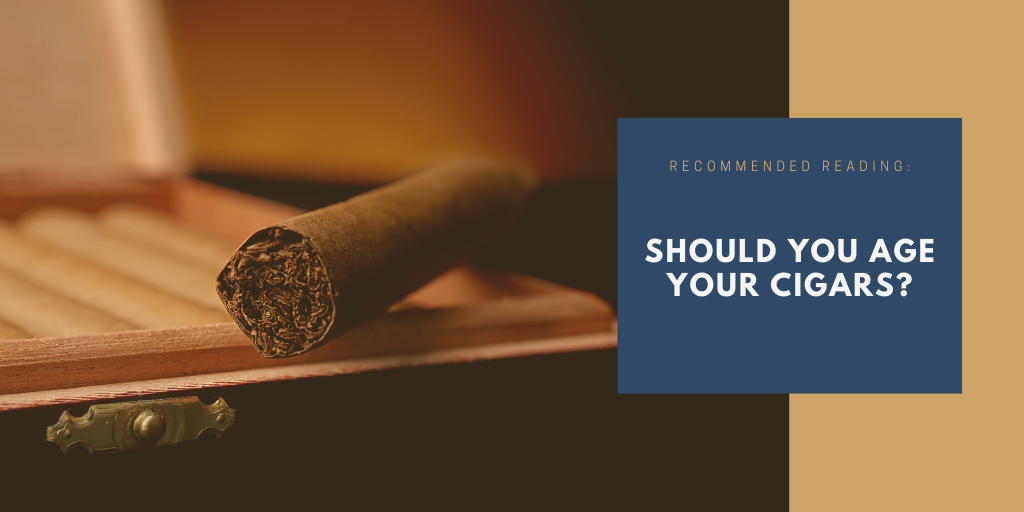If you’re new to cigar smoking, you may have asked yourself whether you can age cigars at home. On the one hand, you may have heard from experienced cigar enthusiasts that aging cigars for long periods can dramatically enhance their flavor and offer a unique smoking experience. On the other hand, especially if you’ve already smoked a few cigars fresh from the store and found them just fine, you may be unsure whether home aging your cigars is necessary and, if so, exactly how to go about it.
The fact is that like so many other aspects of cigar culture, the answer to the “to age or not to age” question comes down to personal preference. To help you decide whether home cigar aging is something you want to explore, read on for a closer look at some key facts to know about the process, as well as some tips on how to do it right.
Why do some smokers age cigars at home?
There are two main reasons why some cigar enthusiasts choose to age cigars at home:
They believe it improves the flavor—Note the wording here: smokers who age cigars at home believe it improves the taste of those cigars. In other words, home-aged cigars are not automatically or necessarily better than unaged cigars; it’s simply that some smokers prefer how their cigars’ flavor develops over a prolonged aging process. When done properly, the aging process certainly can bring softer, rounder, and more complex nuances to a cigar, and consequently to your final smoking experience, so it’s really just a question of whether that’s to your taste or not.
They have a large cigar collection—Another common reason some smokers age cigars at home is practicality. If you have a large cigar collection, some of your cigars will end up waiting weeks, months, or even years before you get around to smoking them. In these cases, knowing how to store your cigars so that this waiting period benefits—rather than detracts from—their flavor is essential.
What are some important things to know about aging cigars at home?
As you consider whether you want to try aging your cigars, here are some important things to keep in mind:
Cigars are already aged—If you’re a new smoker thinking about cigar aging, it’s easy to forget one simple fact: the tobacco in your premium cigar is already aged! Various factors will influence how long an individual cigar ages, but on average, it takes a minimum of three years to get from newly harvested tobacco to the premium cigar you’ll find in a store. Fermented tobacco is typically aged in bales for around two or three years, and finished cigars are often stored in aging rooms for anywhere between three months to a year. So it can be helpful to think of home aging as an extension of the aging process your cigar has already been through, rather than something new and radical you’re doing to influence the flavor.
Older isn’t always better—It might be easy to assume that if a home-aged cigar tastes better after one year, it will taste even better after five years. However, another important rule of thumb for cigar aging is that older isn’t necessarily better. An extra year or two of aging can indeed turn a good cigar into a great one, but most enthusiasts agree that a cigar’s flavor won’t continue to develop beyond about five to seven years of aging. Furthermore, the longer you age a cigar, the greater the risk of developing unwanted conditions such as mold or cigar beetles.
Cigar aging takes commitment and patience—Aging cigars at home is a process that involves a lot of trial and error as you figure out how best and how long to age your cigars so that they develop in line with your tastes. In the beginning, you’ll need to be patient, as it may take quite a while for you to hone your aging techniques. To give yourself some encouragement, try starting small. You can notice a difference in the taste of your cigars even after a couple of weeks of aging, and noticeable changes can happen within a few months.
If I want to age my cigars at home, what should I do?
To maximize your chances of success when aging cigars at home, it’s essential to:
Choose the right cigars—Just like wine, not all cigars are meant to be aged. Good candidates for aging are medium-bodied premium cigars (for short- to mid-term periods) or robust, full-strength cigars (for longer aging). Lighter, milder cigars, on the other hand, are best consumed right away.
Choose the right storage environment—It’s fine to use a do-it-yourself storage option if you’re just keeping cigars around for a few days, but for prolonged home aging, you’ll need a high-quality humidor that has been properly seasoned and adjusted for optimum aging conditions.

